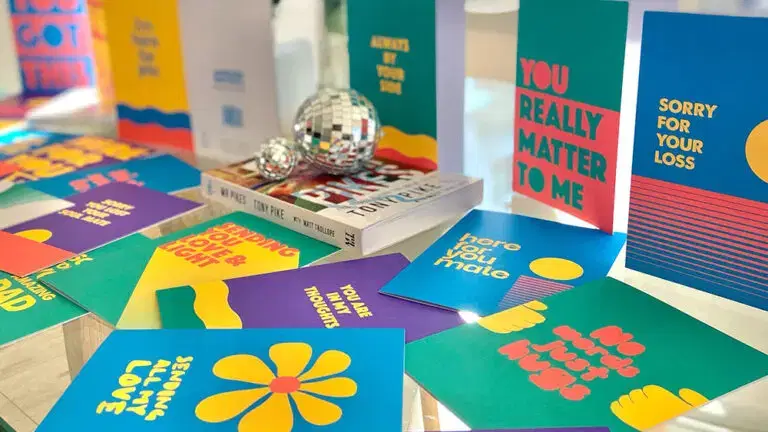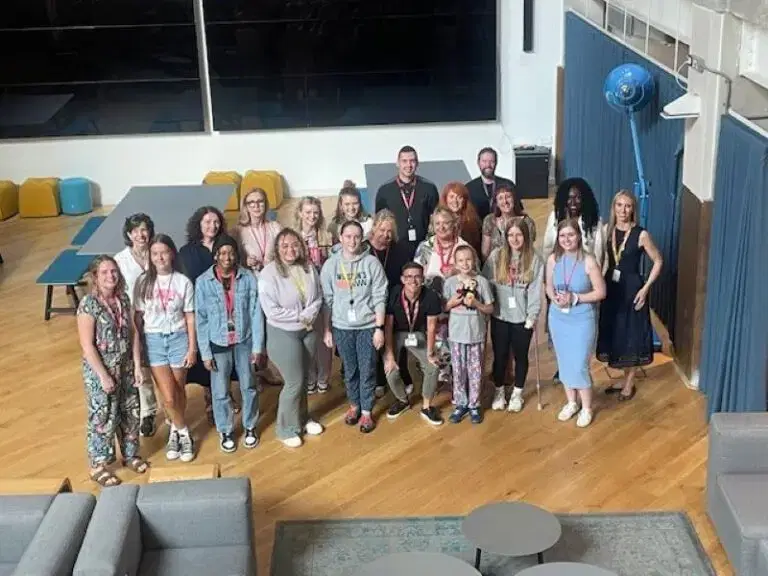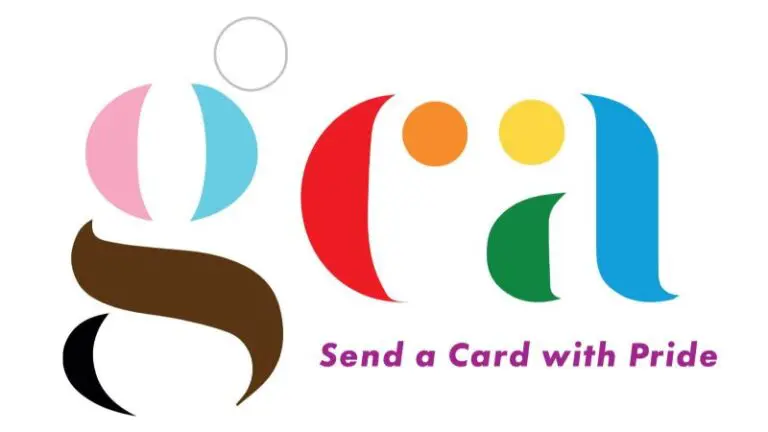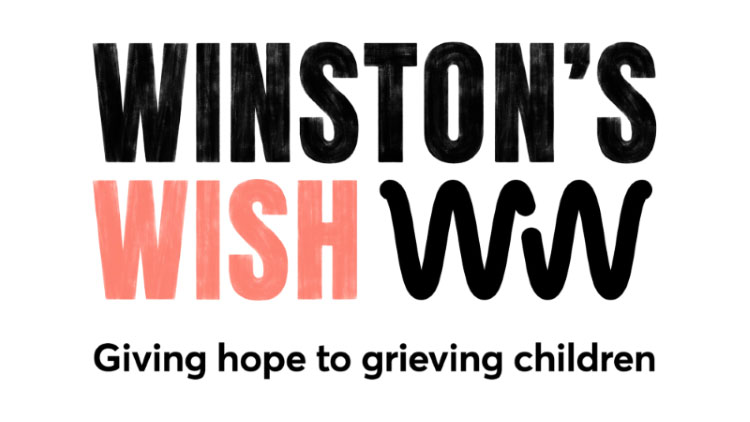
Hannah McDowall and Dave Martin have set up Better Birthdays, a campaign to encourage the celebration of age; asking for a reimagining of aging and ageism.
They have spoken to many in the greeting card industry and their ‘call for age-friendly designs’ featured in PGBuzz in August 2022.
Here Hannah and Dave share more with the GCA:
We work for Canopy, a social enterprise that partners with communities to re-imagine a fairer world. For the last 10 years we have worked together on projects and events which reimagine ageing, asking people of all ages to strip away the cultural baggage which keeps them stuck in fear of change, in fear of ageing.
Hannah McDowall and Dave Martin
What is ageism?
The Royal Society of Public Health has published a new report examining how attitudes to ageing can affect our health and wellbeing. According to the World Health Organisation children as young as 4 years old become aware of their culture’s age stereotypes. From that age onwards we internalise and use these stereotypes to guide our feelings and behaviour towards people of different ages. We also draw on age stereotypes to perceive and understand ourselves, which can result in self-directed ageism at any age. Ageism intersects and exacerbates other forms of marginalisation including those related to sex, race and disability. Research shows that ageism:
– Hurts our mental and physical health. It shortens our lives according to research at Yale.
– Impacts both young and old, and negative ideas about age start very young.
– Impacts our economy by increasing healthcare costs and excluding people from the workforce.
Most things actually get better with age, especially cheese and wine, and I think we all hope that we’re within this list. Greeting cards can play a really important message when fighting insecurities about aging so it’s important that we’re ensuring that positive messages about aging are available within our industry.
We also need to recognise the differences within society, just because someone is turning 18 doesn’t mean that they drink and stay up all night partying – of course some do, but as an industry we need to make sure that those cards aren’t the only ones that we’re offering.
Mark Callaby, MD Ohh Deer & GCA Council lead on Diversity and Inclusion
How can birthday cards fight ageism and grow wellbeing?
Birthday celebrations are one of the few common times that we all think and talk about age and ageing. It’s a time when we point out what it means to age and what our beliefs are about ourselves and others based on age.
Better Birthdays is an international collaborative campaign, formed in 2022:
Better Birthdays uses birthday cards as a platform for talking about age and ageism, and to encourage designers and consumers to create and purchase birthday cards that celebrate ageing, instead of denigrating it.
Hannah McDowall and Dave Martin
The campaign is not about shaming designers and publishers, as cards which mock age are popular, especially amongst older people, and these cards reflect society’s current attitudes towards ageing and older people. They express the social agreement that ageing is bad and all about loss. However, consider flipping this around:
What if we celebrated children’s birthdays with messages like, “Now you are five, No more fun for you. Welcome to school.”? That’s a pretty incomplete viewpoint on age and it certainly doesn’t seem celebratory. We need other options. We need alternatives that celebrate age and the wider reality of ageing. Yes, some things about ageing are not fun. However, the reality is that much of it is great too.
Hannah McDowall and Dave Martin
The greeting card industry has many examples of brands proudly supporting people of colour, women’s rights, and the LGBTQ community. We want to see this trend extended to include more age-positive greeting cards, such as GCA member Out of the Box‘s cards below.
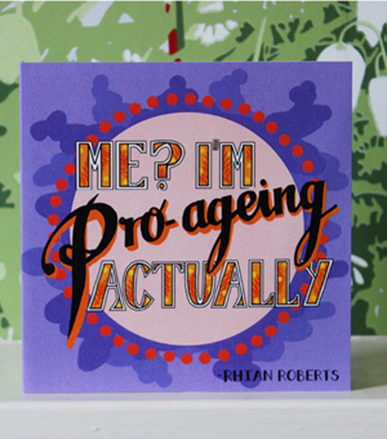
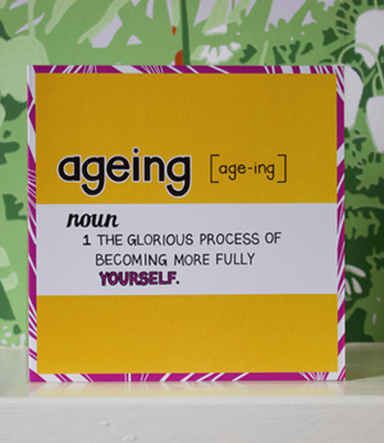
What do we mean by Age Friendly Cards?
Through consultation with designers, we have developed guidelines (below) on how to create age-friendly cards. These discuss vocabulary, storylines, and images and how all these components create messages about ageing. There are examples of what to avoid as well as what to use.
Research shows that changing our messaging and images does change our beliefs and behaviour. This process is called “reframing ageing” and it can be applied to everything from our casual conversations, media and advertising, and public policy.
Hannah McDowall and Dave Martin
Further Information
Download the Better Birthdays guidelines below.
Visit Better Birthdays website to find out more to be part of the campaign to end ageism.
To contact Dave Martin email lifecourseageing@gmail.com

